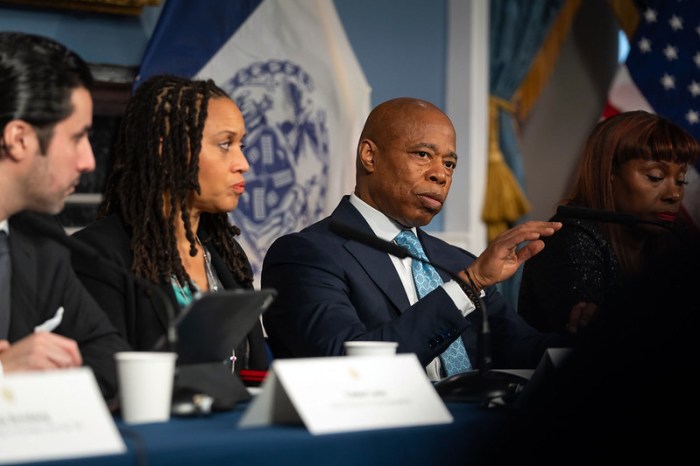 BY LENORE SKENAZY
BY LENORE SKENAZY
Friday was a normal day for my friend Barbie Levin, a physical therapist. She went to the modest home of a brand new patient, a baby who’d had a stroke in utero, was now 1-year-old and still not crawling because one leg was too weak.
As the mom watched, Barbie got down on the floor and placed the baby into crawling position. Then she asked the mom to go get the baby’s favorite food — a veggie stick (the kind that’s like a Cheeto, not a piece of celery). As the baby tried to propel herself forward but couldn’t, Barbie propped the weak leg up and the baby managed a tiny scoot. Then Barbie had the mom get on the floor, take her place, and do the same re-propping.
The baby took her first three “steps” ever. She reached the treat and, said Barbie, smiling broadly, “ate it with relish.” As she left the mother stunned with joy, Barbie felt pretty good.
And also pretty bad.
Like that baby, Barbie was born with a medical problem, too: something wrong with her urinary tract that affected her kidneys. As a little kid in the 1950s and ’60s, she was in and out of the hospital in an era when people were a lot less sensitive to what that feels like for a child.
“The nurses would practice catheterizing on me,” Barbie, 61, recalls.
Each stay at the hospital lasted about a week, and she never knew when another one was coming.
“My mom would wake me up and say, ‘It’s a hospital week!’ ” and Barbie would be overwhelmed with terror. Probes and pain and loneliness loomed, as did the humiliation of having interns, mostly men, coming in to examine her urinary tract and discuss it as if she wasn’t there.
Thank God for the arts-and-crafts lady who made her daily rounds. Barbie made a set of tiny dolls. She kept them for 40 years.
By then, Barbie was a real mom, a single mom by choice.
“I spent all those years working with and falling in love with other people’s children,” she says. “It was time to have my own.”
But her kidneys, damaged since childhood, were starting to fail. A few years ago the doctors told her she’d probably need a transplant — terrible words to hear in New York.
The wait for the kidney from a deceased donor in our state is seven to nine years, one of the longest waits in the country. (That, by the way, is why we should have people opting out if they don’t want their organs donated upon death, rather than having to opt in by checking a box on our driver licenses. In Spain, everyone is automatically registered for after-death organ donation, unless they choose to check the “No” box. The average wait for a kidney there is eight months).
Since the wait here is so long, and since a kidney donated by a living person tends to last up to twice as long as a cadaver kidney, as Barbie’s condition worsened, she started a blog, BarbiesKidneyQuest.wordpress.com.
How do you explain to someone who you are, and why they might want to consider giving you a kidney?
Barbie’s now college-age daughter Yona took a stab at it. She and her mom have one of those relationships, she wrote, maybe because it has always been just the two of them, where they sing together in the kitchen. They watch a lot of murder mysteries on television — the British ones. They live in Stuyvesant Town where Yona grew up watching her mom check in on elderly neighbors (there are plenty!) and bring them soup.
As Barbie’s friend, I watch and marvel, too. She loves learning things like carpentry and cocktail making. She invented a grated-ginger cocktail in 2012 that is still the talk of our circle. She made her own guitar, and couch, and just did a glassblowing class with her daughter. Even as a child at Jewish sleep-away camp, where one of the offerings was Yiddish class, she signed up.
“I was the only one.”
She loved it.
Like many of her friends, I did a little research and found out that giving a kidney does not shorten the donor’s life or compromise their health. So I got tested to see if I’m a match. I’m not. None of us are. Turns out I couldn’t do a “swap” either, where I’d give my kidney to a patient I matched, and their donor, a match for Barbie, would give her theirs. So instead, I am introducing you to her.
A childhood spent at the hospital. An adulthood spent making ailing kids better, and parents weep for joy. Endless curiosity. Deep friendships. And a loving daughter she loves back, more than the moon and the stars.
A life worth saving.
Lenore Skenazy is founder of Free-Range Kids, a contributor to Reason.com, and author of “Has the World Gone Skenazy?”

















